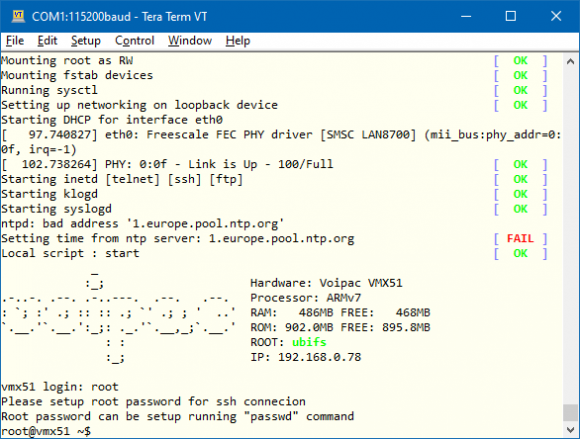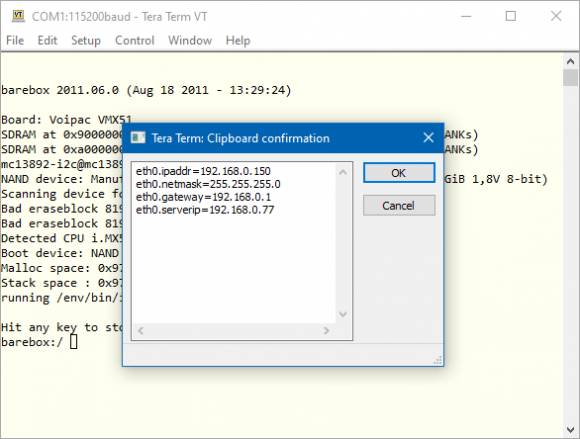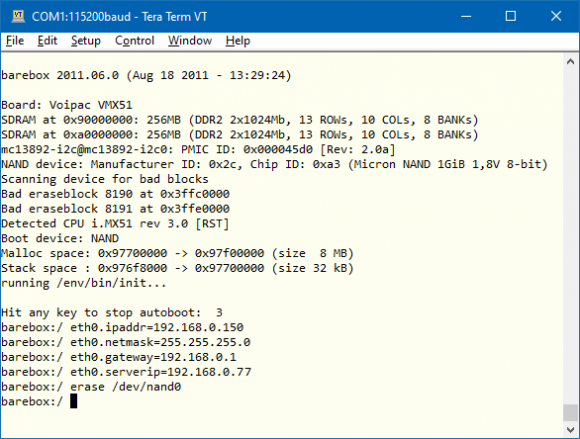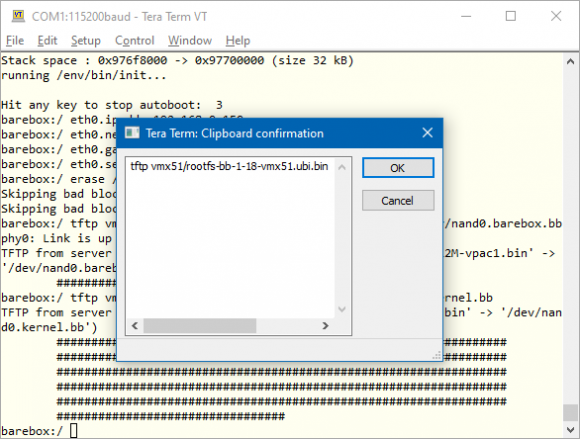i.MX51 SODIMM PC Max Flashing images
This section describes flashing Barebox, Linux kernel and filesystem images.
If module could not start loading Barebox from its memory, recover bootloader by following these steps first.
Preparing for files transfer
Make sure FTFP server is up and running. Download the latest images and store them into the TFTP directory:
A local network without DHCP control is recommended. Define network parameters for this network first:
eth0.ipaddr=192.168.0.150 eth0.netmask=255.255.255.0 eth0.gateway=192.168.0.1 eth0.serverip=192.168.0.75
Erase NAND Flash memory:
erase /dev/nand0
Downloading and flashing images
Load the firmware files:
tftp vmx51/barebox-2011_06_0-vmx51-512M-vpac1.bin /dev/nand0.barebox.bb tftp vmx51/zImage-2_6_35-vmx51-vpac2.bin /dev/nand0.kernel.bb tftp vmx51/rootfs-nand-bb-1-18-vmx51-vpac0.ubi.bin /dev/nand0.rootfs.bb
When the process is finished, reset the board. During the NAND storage erasing process the MAC address was deleted as well. It is required to be set up again. The MAC address can be found on the sticker placed on the module (in format 00:0d:15:00:XX:XX):
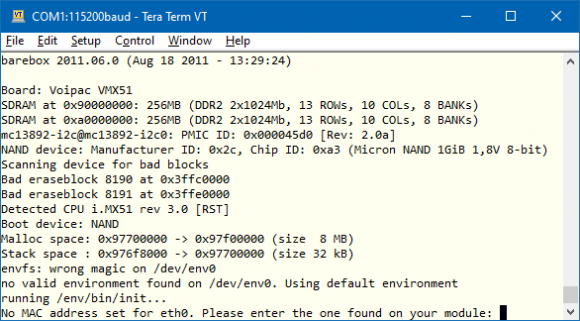
Reset the board. The module boots with newly downloaded files. The default vmx51 login is root without set password:
